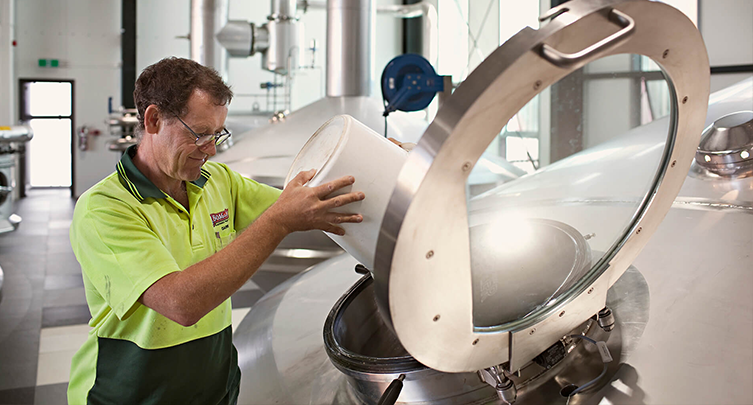I was at a workshop the other day which was technology-focused and we do seem to be in an age of thinking that “unleashing technology” is the panacea for massive results.
This got me thinking. Does everything need to be about technology implementations and/or radical people project deployments? Is it all or nothing? Is it all “big bang” change from the top? Well, it certainly does have its place, but so does another technique: Relentless, Consistent Focus.
Let me explain. In Lion’s supply chain, we are massive believers in lean methodologies and have custom built our systems after learning from many great experts. This aspect is, indeed, a strong differentiator for us in the way we do things and the way we are enabled to be the best we can be. The thing is – only 50 per cent of our improvement comes from the “big bang” (highly structured) approaches, the other 50 per cent comes from incremental improvement – day in and day out (and we measure this).
This Relentless, Consistent Focus comes with understanding how you make value flow through your business for the customer (i.e. a lean philosophy), identifying the pinch-points in your end-to-end supply chain, and removing them.
Our leadership model is to “flip the triangle” on these pinch-points. What does that term mean? No, there are no hand gestures! A traditional organisational design is shaped like a triangle sitting on its base, with the pointy, pinnacle being the Chief Supply Chain Officer, or CSO. However, the reality is the CSO is too far removed from driving detailed change and shouldn’t be the approver of all things. Indeed, seeing a CSO out on a production line is great for people engagement, but a worry if they’re needed to fix line bottlenecks. A CSO needs to act with purpose, but not as the expert of all things.
Lion’s technique sees us forming teams (we call them focused improvement teams) and giving them the freedom to attack the pinch-points and simply make change happen. These teams ask the CSO for freedom, resource, and then work to find and install the solution. They are the experts in this mode. The CSO is subservient to the team in this improvement strategy. I always ask, for instance, “what help do you need?” rather than “you must do what I say”. There’s a massive difference in the resulting culture between these two interactions and that culture starts at the top.
When you “flip the triangle” on a problem, everyone is a leader of continuous improvement and team members are at the coal-face of problems, who best understand, own, and deliver the solutions. We ensure every team’s approach is time-bound, specifically outcome focused, free to focus on improvement (from the hectic “run” part of the business), and we plan application of finite resources at a network level to enable maximum support for these teams. This often sees us with a multidisciplinary team, working at times across sites, geographies or functions driving small change. It’s repeatable, it’s fast, and every little step forward adds up to a massive difference for the organisation. The side-effect is it’s an empowering place to play when you have the freedom to make a difference.
We have more recently further broken this approach down to be even more nimble involving many parties of only three individuals who conduct experiments “live” and “on-the-fly” in our processes to look for new ways to improve. Not with a problem in mind, but with a question around how to do it even better.
Whilst we’ve been using this approach for years with a lot of success, I must admit in hindsight you can hear the distant echoes of “chapters, squads, and scrums” if you’re an agile project management proponent. What I love about agility, is applying resources to the issue and not being bound by organisational structural paradigms. Some cultures naturally evolve in this way when there are high levels of trust.
The key here is it’s not all technology and “big bang” projects, which seems to over-index in attention and consultant commentary. If you want a truly, long-term, world-class supply chain, you need to make it about the people.
Allow them to apply their innovative thought to everyday work, every single day! It is about having relentless, consistent focus on the little daily improvements, harnessing the true expert knowledge in an organised way, and simply letting people get on with the job. Sure, sometimes a big intervention is needed, but if that’s all you ever do, you’re missing a lot of fun and business value at the same time.
News & media
Stay up to date
Never settling, we continue to challenge the status quo and seek out ways to do things differently. Read how we are going beyond to deliver more value for our business and society every day.



